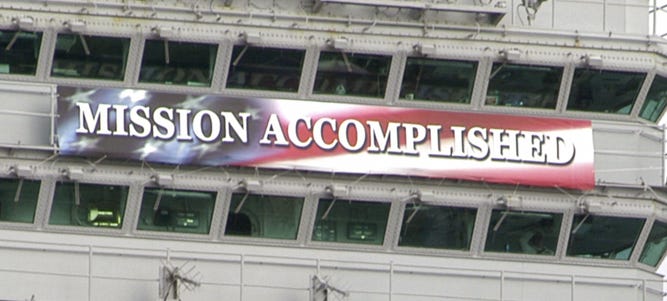Are you a skeptical observer of US foreign policy? Are you a policymaker with a sense that your office’s work could be more effective? Are you an aspiring leader in foreign policy?
Welcome to my new Substack. The question I will explore here is: What does it mean to be an expert in foreign policy? This challenge has motivated me for nearly two decades, as a congressional aid during debates over the Iraq War, as a diplomat supporting the war in Afghanistan, as an academic, and now as the founder of a think tank, fp21.
We have entered a dangerous era in international affairs, and the stakes couldn’t be higher. Yesterday’s approaches are insufficient for today’s more complex world.
So let’s begin with the bad news: nobody really knows what it means to be an expert in foreign policy. Sure, there are people with impressive resumes and deep reservoirs of experience. The government treats them like experts, the press treats them like experts, and universities treat them like experts. But are they successful at crafting winning foreign policy? We really can't say.

We are unable to say because there’s virtually no attempt to measure success and failure in US foreign policy, and thus little foundation upon which one can claim merit. When I’m feeling cynical, I joke that “foreign policy is the art of setting ambiguous goals and always claiming success.”
Indeed, policymakers love to talk about the “art” of foreign policy. Their view – the dominant view – is that expertise arises from an elusive combination of gut instinct and hard-earned experience. Like Supreme Court Justice Potter Stewart’s definition of pornography, we simply “know it when they see it.” Surely, experienced policymakers know a lot about the world and are dedicated to their work. But good foreign policy must be more than simply a matter of taste. Even art requires technique and fundamentals. This is where our foreign policy has failed.
Expertise is more than the mere accumulation of years of experience. As this newsletter will explore, everything we know about the science of expertise suggests it cannot flourish under the ambiguous conditions presented by our foreign affairs organizations.
The decline of the United States’ position in the world in the two decades since I joined the profession should inspire serious reflection about how our leaders make foreign policy. The United States made a historic blunder in Iraq, mismanaged the supposed “good war” in Afghanistan, slipped back into a violent confrontation with Russia, failed to capitalize on the Arab Spring, set a dangerously confrontational course with China, and presided over a worldwide rise of authoritarianism.
Despite this decline, little has changed in the cloistered profession of foreign policy. It has overlooked tectonic shifts in the knowledge economy and jeopardized the competitive edge of US foreign policy. Our capability to make effective policy has atrophied at a time when the international environment is more fast-paced and threatening than ever before.
Now for the good news: the profession of foreign policy is ripe for a paradigm shift. From Silicon Valley to financial services, political campaigns to baseball, today’s most successful enterprises have built cultures grounded in evidence, analytics, and innovation. Organizations that use experimentation, data, rigorous evaluation, and new tools of decision-making have proven more efficient and efficient than the previous generation. Within foreign policy, a new generation grew up traversing the information superhighway. They think differently about the production of knowledge.
The single most important ingredient for expertise, according to the best-available research, is feedback about success and failure. Without feedback, confidence grows as one gains experience, but effectiveness can flatline.
For foreign policy expertise to flourish, we need to build institutions that relentlessly focus on success. That is the focus of this Substack. I hope you’ll join me on this journey and help set a new standard for expertise in foreign policy.
Some topics I will write about in the coming months:
Evidence-based decision-making
How to build a culture of learning
Developing curriculum for training foreign policy experts
Data-driven tools, including AI
Academic research on expertise and decision-science
Forecasting, prediction, and uncertainty
The relationship between politicization, control, and expertise in our foreign policy organizations
Information collection and knowledge management
Monitoring, Evaluation, and Learning
Workforce issues (promotion, diversity, hiring, etc.)
Bridging the gap between academic research and the practice of foreign policy



This seems very interesting but I can’t tell if you’ve read Tetlock’s Expert Political Judgement or not. Subscribed, regardless